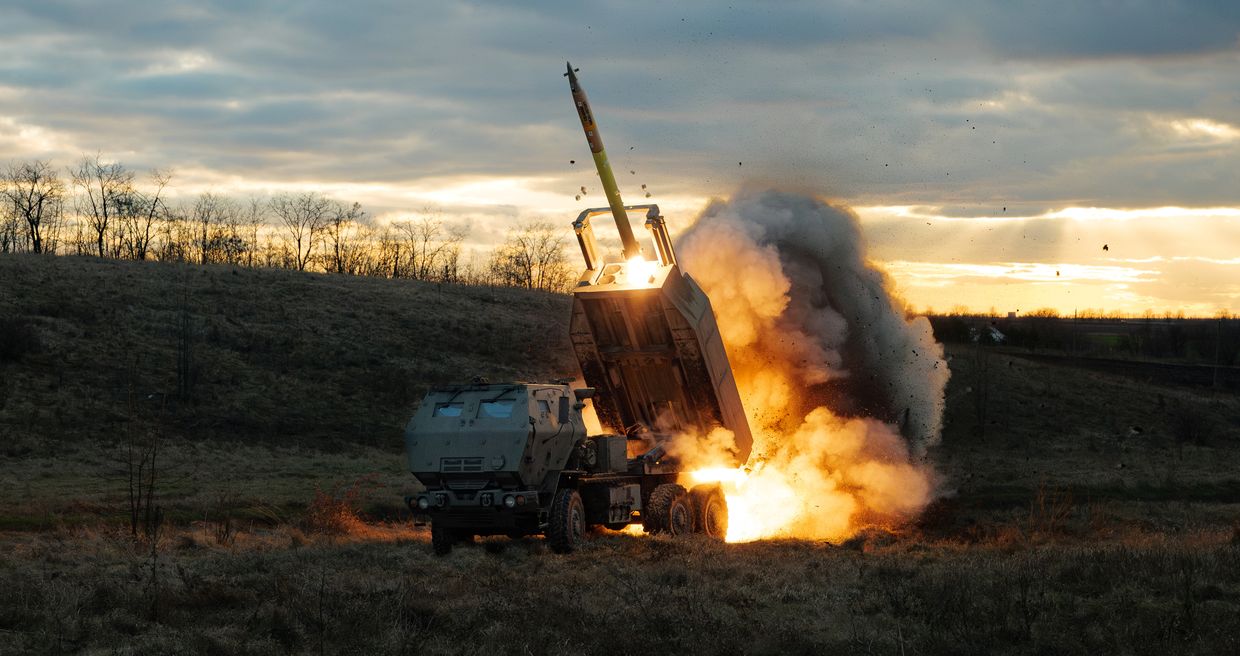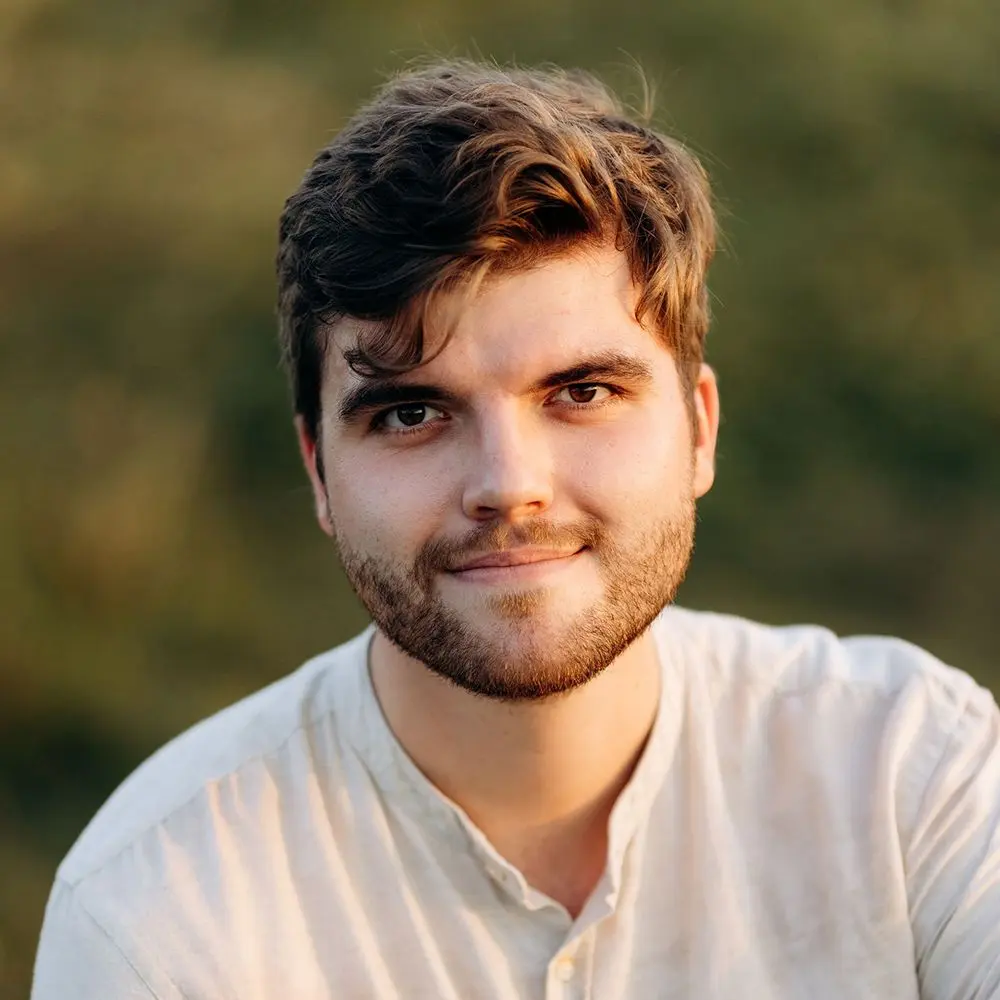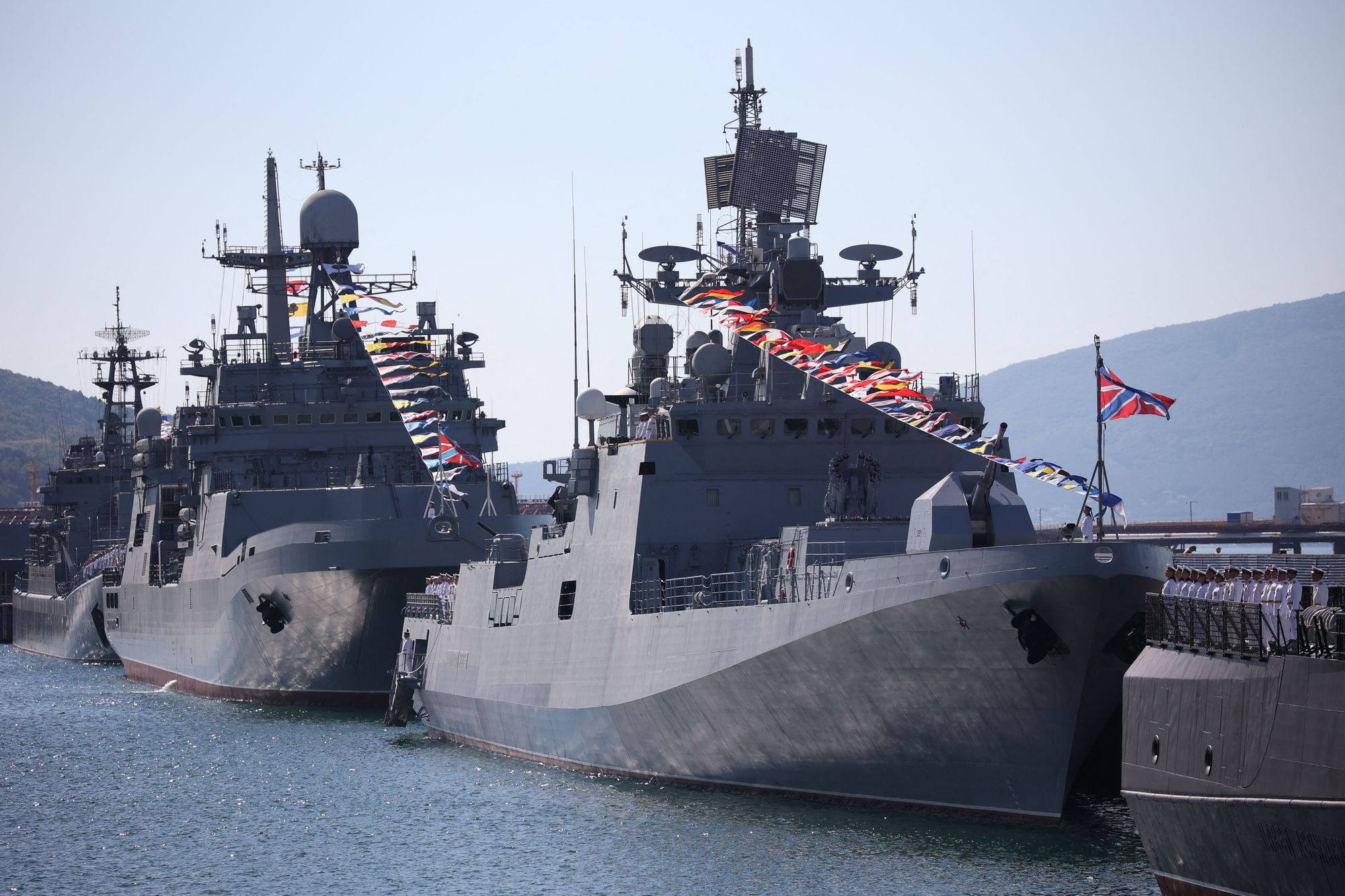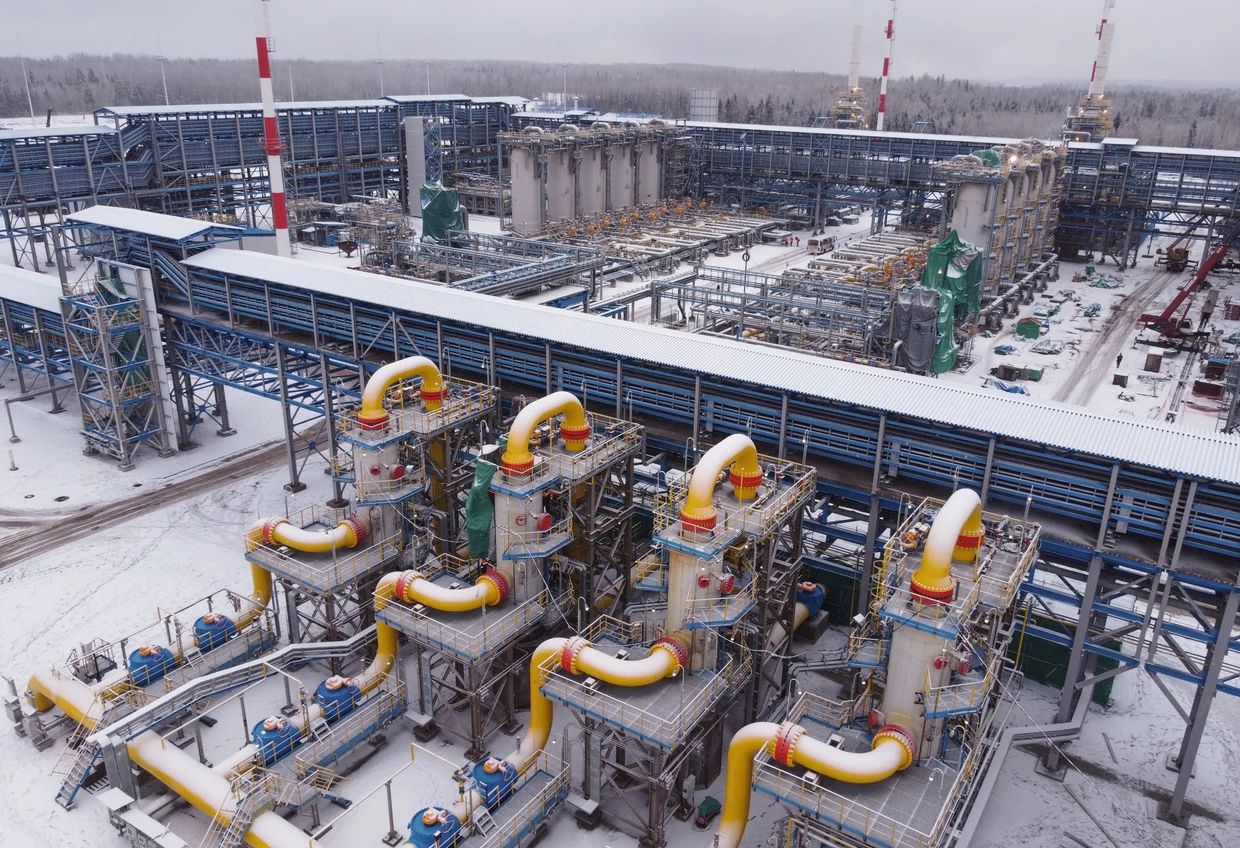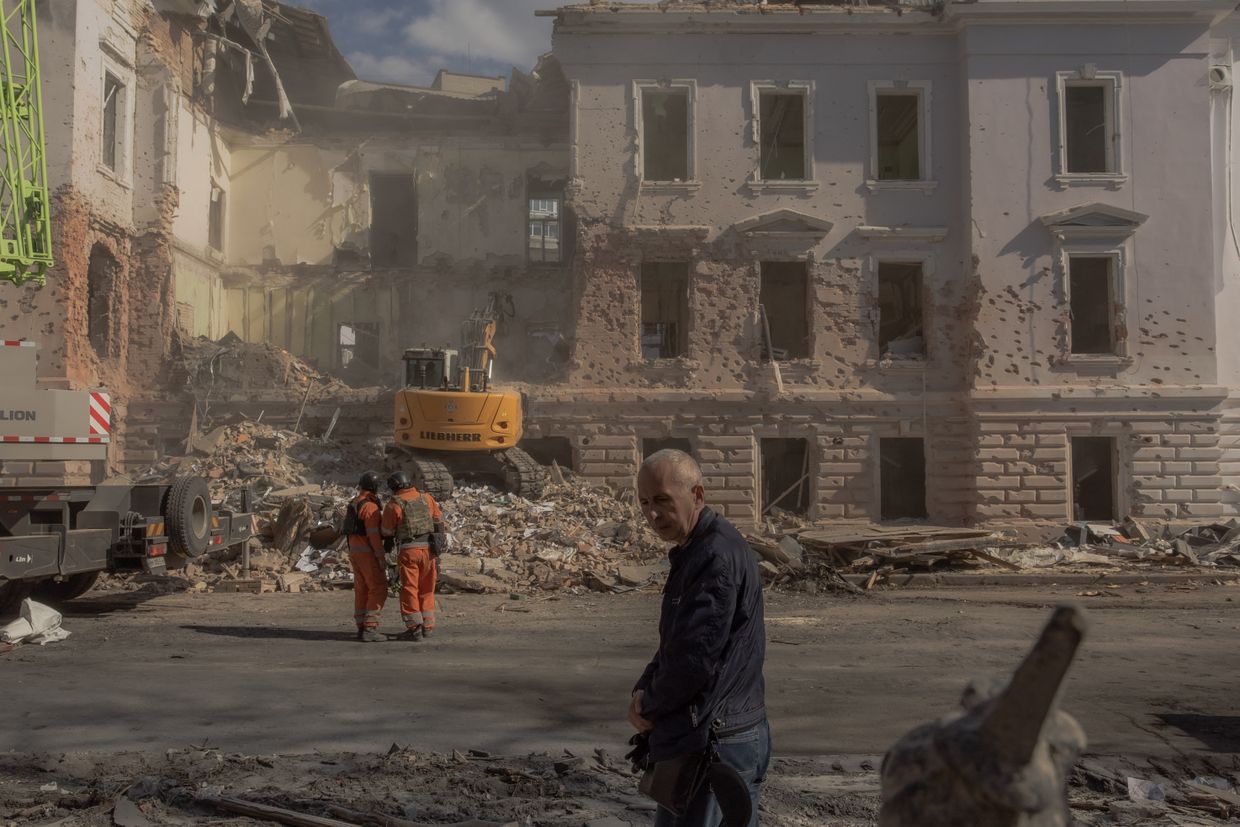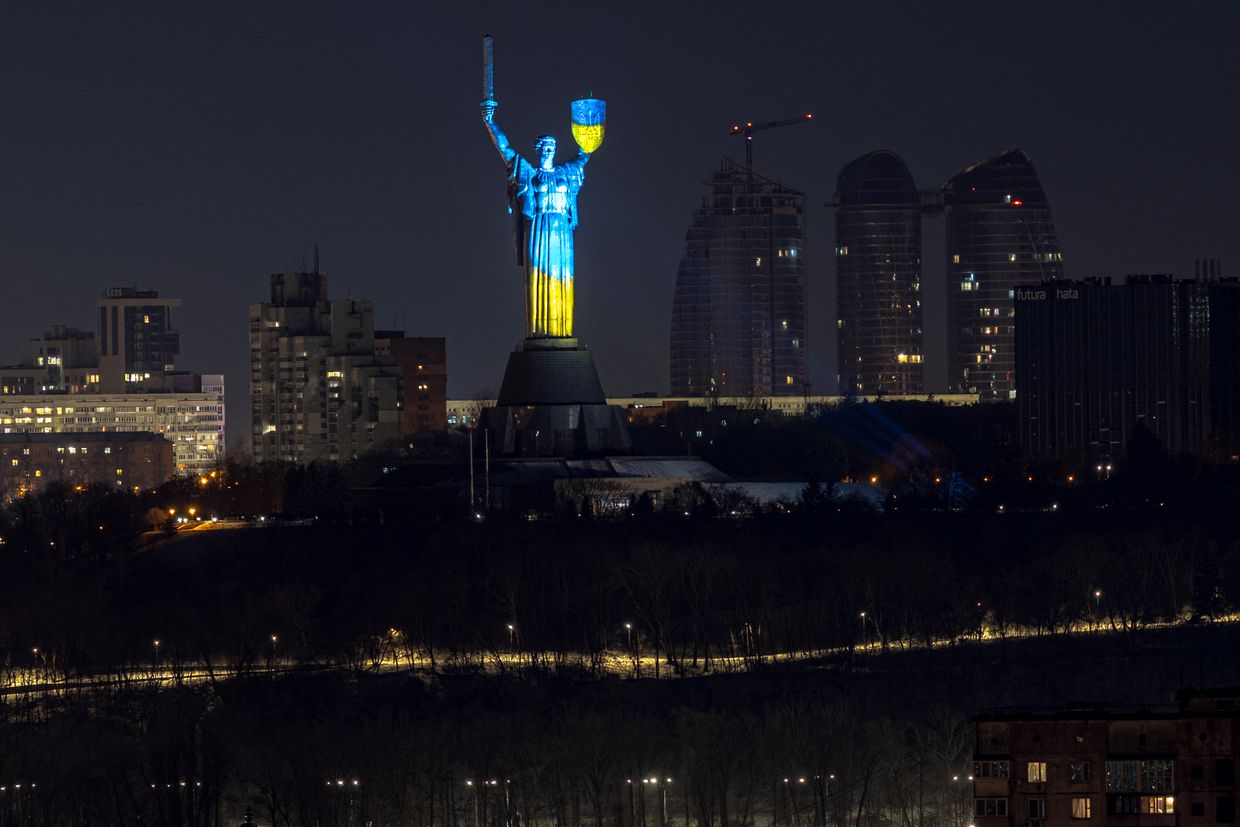Editor’s Note: This interview has been edited for clarity.
When Russia launched its full-scale invasion of Ukraine in February 2022, it dramatically changed the continent.
The largest conventional war in Europe since World War II demanded Western leaders move away from their peacetime thinking and step in decisively to help stop the aggression.
Despite clear warnings leading up to that moment, many were too slow to heed this call, says Timothy Garton Ash, an Oxford professor, historian, and commentator.
In his prize-winning 2023 book "Homelands: A Personal History of Europe," Ash provides an account of European history from the post-World War II period through the "post-wall" (post-Cold War) era, pointing out mistakes that led to the full-scale invasion of Ukraine.
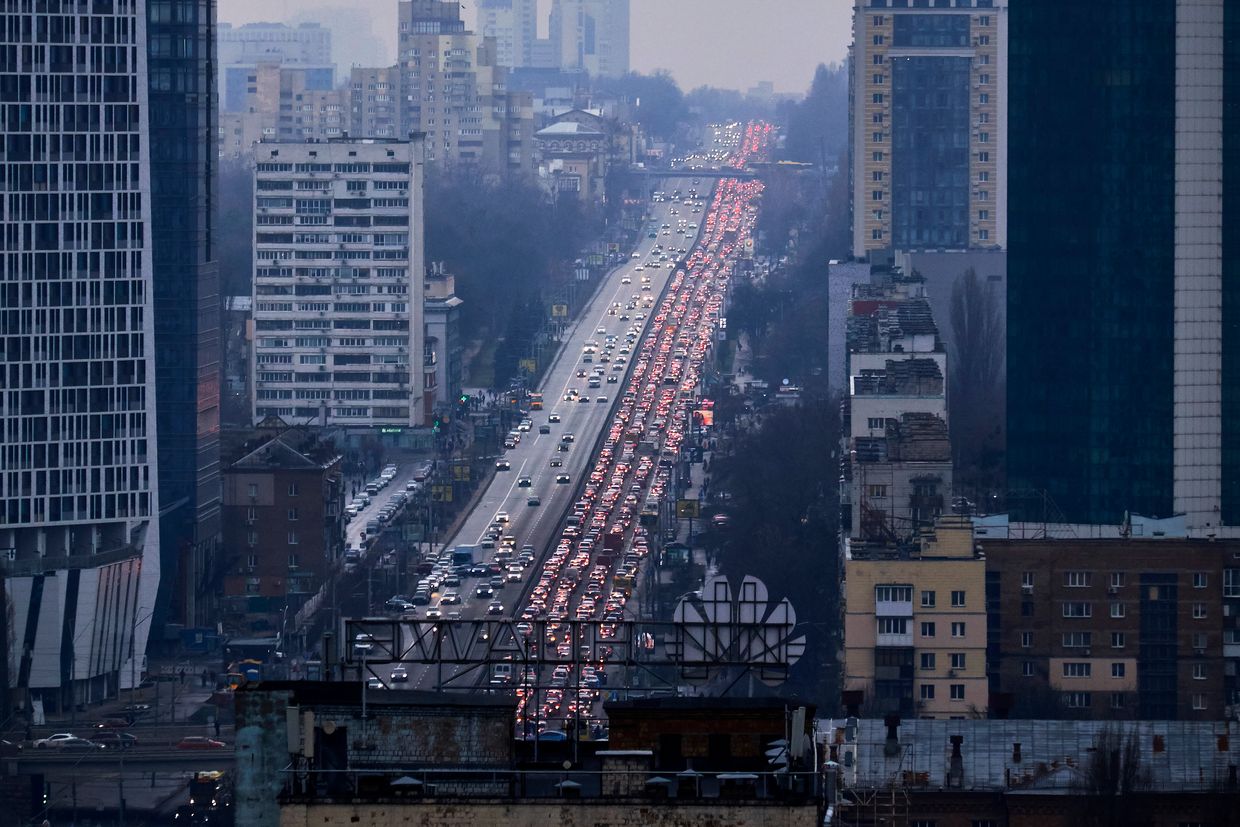
Apart from his work in history, Ash is a prolific columnist, penning articles that call for more decisive action by the West in support of Ukraine.
The Kyiv Independent sat down with Ash in Lviv on May 17, a day before he spoke at the annual Lviv Media Forum on how Ukraine and the world still seek to find a common language in the third year of the full-scale war.
We talked about what is lacking in the Western understanding of the war, its causes, and Russia's invasion from the perspective of a historian.
The Kyiv Independent: What do you think is missing in the understanding between Ukraine and the world?
Timothy Garton Ash: Clarity in the rest of Europe, and in the rest of the world, that we need Ukraine to win.
The Kyiv Independent: What do you define as a victory?
Timothy Garton Ash: Around half of Europe is still harboring the illusion that there's a halfway house, which is captured in the formula: “Russia not to win and Ukraine not to lose.” So, let's first ask, what does that mean, “Ukraine not to lose?” I have a clear answer to that: Ukraine not losing is Ukraine losing.
We have these policies of self-deterrence from the (U.S. President Joe) Biden administration, and to some extent – although less so now – from the (Chancellor Olaf) Scholz government in Germany and other governments. The effect is to enable Ukraine to go on fighting but not to win.
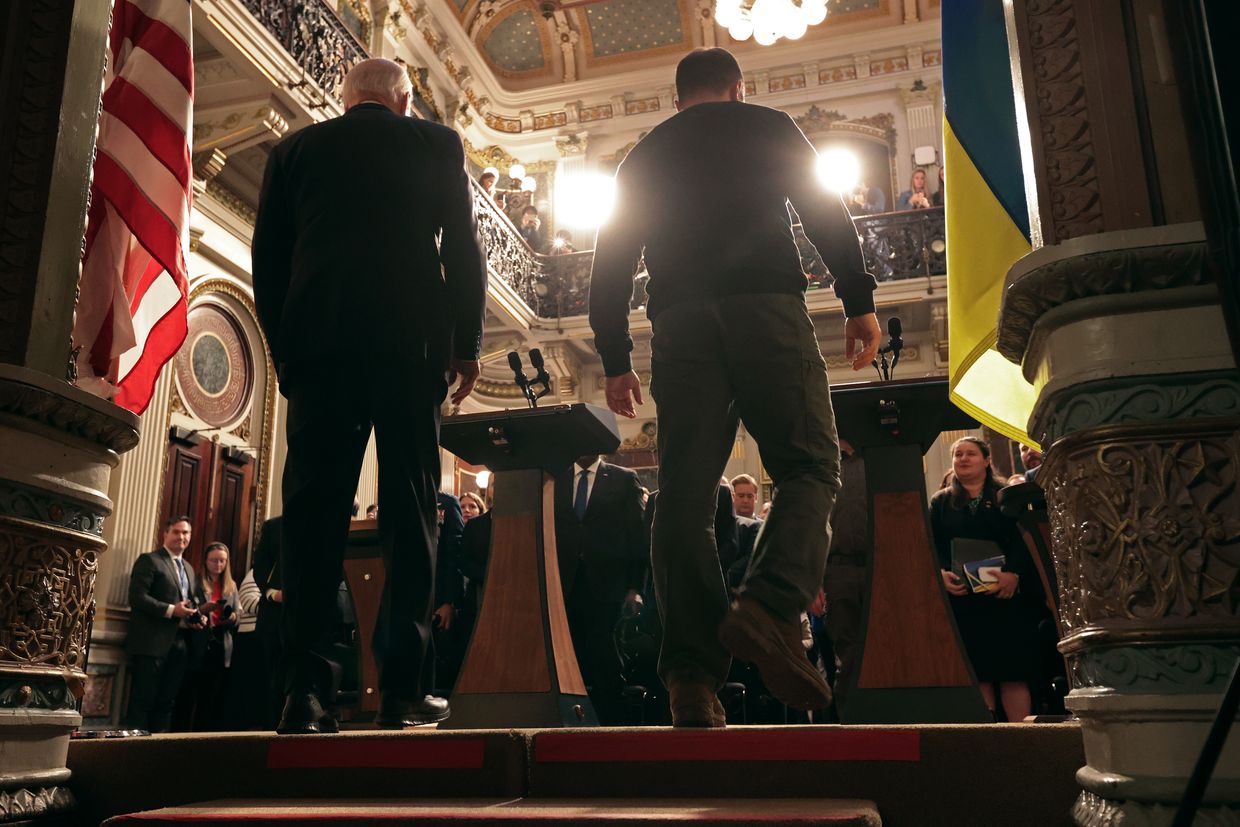
As to the question of winning, it should be such a situation in which the majority of Ukrainians feel that this is a victory, and the majority of Russians and the rest of the world feel it’s a Russian defeat.
And the last part is very important. In a global opinion polling that my Oxford research project did with the European Council on Foreign Relations last October, we saw that China, India, Turkey, Indonesia, South Korea, Saudi Arabia, South Africa, Brazil, all these major non-European powers think that Russia is at war with the West, not with Ukraine.
In that view, they've accepted the Russian narrative about Russia against the West, and therefore, our own credibility is at stake. We may think it was Ukraine that lost. The rest of the world will think it's the West that lost and Europe that lost.
The Kyiv Independent: What do you think is the source of this hesitancy on the side of Western leaders?
Timothy Garton Ash: Well, not all Western leaders. We have some very good ones. Kaja Kallas in Estonia. Petr Pavel in the Czech Republic has been magnificent on this subject. Mette Frederiksen in Denmark has been very good, the British – all of our prime ministers – not just Boris Johnson (laughs).
But in key places, of which the most important is Berlin, I think it's a mixture of things.
The fear of escalation – clearly, Biden's instruction to (National Security Advisor) Jake Sullivan was: don't get me into World War III. Ergo, in the fighting in Kharkiv, the Ukrainians are being told, “You can't use any Western weapons to hit Russian territory.” Russian territory is just up the road, it's closer than Oxford to London.
Probably the most important reason is that you have leaders who've got so used to peacetime ways of functioning that it's very difficult to adjust to the different requirements of war. In war, you have to be bolder, act and speak more decisively and faster.
Scholz is carefully weighing every decision. That's a very good thing if you're making an investment decision for a peacetime business, but not if you're trying to help a country that is fighting for its survival.
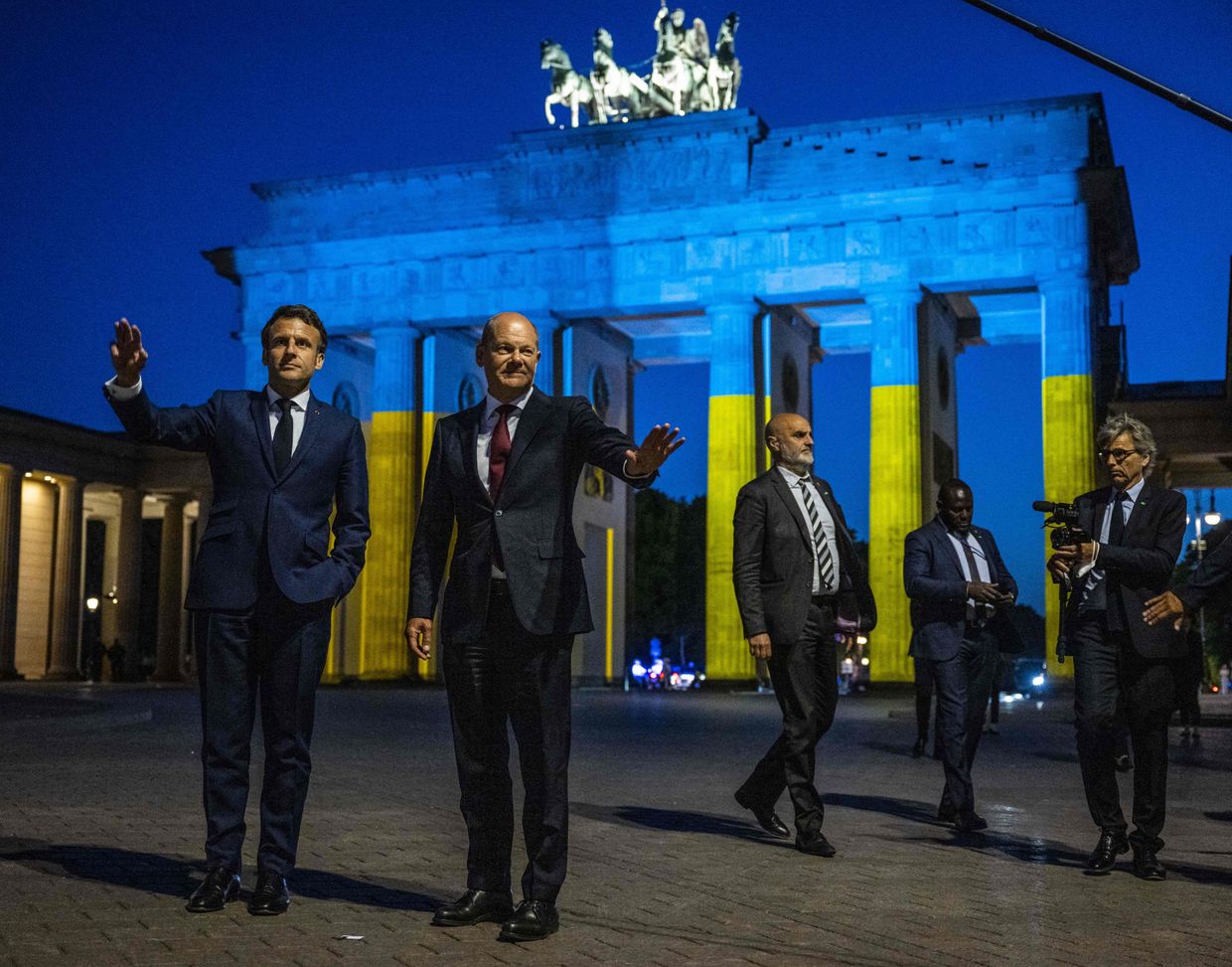
And then I think the third element is: “We have to have a relationship with Russia going forward. Russia is a great power. It's a nuclear power.” So that's trying to keep some sort of balance between Ukraine and Russia.
The Kyiv Independent: You mentioned Kaja Kallas and Petr Pavel, who come from countries that are in Russia's vicinity and may feel that the war concerns them more directly. But what would you tell those in Western Europe and the U.S. when they ask, “Why should we care if Ukraine wins?”
Timothy Garton Ash: First of all, these things are not just rational. If you want to understand why different European countries reacted differently to the war in Ukraine, you have to look at their history.
The Czech Republic has its own history with Russia.
In Britain, all you have to say is (Vladimir) Putin is the new Hitler, and immediately people get it. Britain has to be on the side of those fighting for freedom against the new Hitler.
Objectively, you need to say: If he wins here, he won't stop there.
He probably won't attack Estonia directly, but Moldova would be highly threatened. So it's an issue for European security.
And for the U.S., where the top issue is China, you have to say, “You see Putin in Beijing with Mr. (Jinping) Xi. You see how close they are. If you want to encourage Xi Jinping to have a go at Taiwan, then let Putin win in Ukraine.”

The Kyiv Independent: There are worries that even if the current war now ends with a peace deal, it will give Russia time to gather strength and continue with the war later. What must change so that there can actually be a lasting peace between Ukraine and Russia?
Timothy Garton Ash: I'm not sure that “lasting peace between Ukraine and Russia” is quite the right way to formulate it.
The question is so that Ukraine can be secure and doesn't face the prospect of renewed Russian aggression in six months, six years, 10 years. Ultimately, the answer has to be NATO.
I remember hearing then-Finnish Prime Minister Sanna Marin at the Munich Security Conference explaining why Finland now decided to join NATO: That's the line the Russians won't cross.
But up to that point, there has to be some package of support that is together so strong that even if Russia has regenerated its forces, it won't risk it.
Of course, the best way forward would be a change within Russia itself. We can't count on it, but nor should we exclude it. The characteristic of a regime like Putin's is that they don't bend, but occasionally, they break.
Such a change is going to be catalyzed by a Russian defeat, not by a Russian victory. The Crimean War was followed by the liberation of the serfs. The Russo-Japanese War was followed by the 1905 revolution. In 1917, when Russia was basically losing World War I, we had two revolutions.
The Soviet Union lost in Afghanistan, and that was one of the causes that gave us (Mikhail) Gorbachev, and then they lost the Cold War. So Russia can certainly lose. And often, when it lost, it has catalyzed political change inside Russia.
The Kyiv Independent: You wrote that we live in the post-wall era and that Europe's hubris in this post-wall era led to the full-scale Russian invasion. How?
Timothy Garton Ash: We, in what I call the post-wall era – the period after the fall of the Berlin Wall, particularly in the early to mid-2000s – convinced ourselves that history was simply going our way, inevitably, in the direction of democracy, the direction of freedom.
We became complacent. We became over-self-confident, also in our economic model. Remember, two things happened in 2008. One was Putin's seizure of two great chunks of Georgia (South Ossetia and Abkhazia). The other was the beginning of the global financial crisis, which plummeted Western democratic capitalism into a long-term crisis, and the Eurozone in particular, (but) not authoritarian eastern capitalism.
I argue in the book that 2008 was a big turning point in the middle of the post-wall period. From that time forward, we have this cascade of crises.
In terms of Putin's Russia, specifically, I argue that 2014 was the turning point at which the West failed to turn. If we had had a much stronger response at that point, much stronger sanctions on Russia, reducing our energy dependency on Russia instead of increasing it, going after the dirty Russian money swilling around cities like London, rearming, helping Ukraine to build up militarily, sending a much clearer message to Putin… You can never know what would have happened, but it's plausible to think we might not be in the mess we're in now.
The Kyiv Independent: Do you see the West learning its lesson?
Timothy Garton Ash: Too late.
Now, everybody is suddenly talking about Russian imperialism. We have finally understood that this is at the heart of this story, this one sentence: The empire strikes back.
The lesson that we need to be tougher is understood if you go to a think tank, a university, or an editorial meeting. (But) whether the wider society is ready and prepared for the consequences of that, I very much doubt it. In particular, the further away from Ukraine you go.
The Kyiv Independent: Do you see some in the West moving in the opposite direction? Certain countries, like Hungary, have been accused of democratic backsliding, of becoming more friendly towards authoritarian regimes like Russia and China.
Timothy Garton Ash: So it's not just “backsliding” – a term I don't particularly like since it suggests that there's simply a sort of a line, a linear development, and either you go forward or backward along one line.
That's not what's happening. Viktor Orban is going in a different direction. What Orban is showing is that you can have a hybrid regime that is no longer a proper democracy but an electoral authoritarian regime with a policy of hedging between the West, China, Russia, and other great powers even while being a full member state of the EU. And that's extremely worrying.
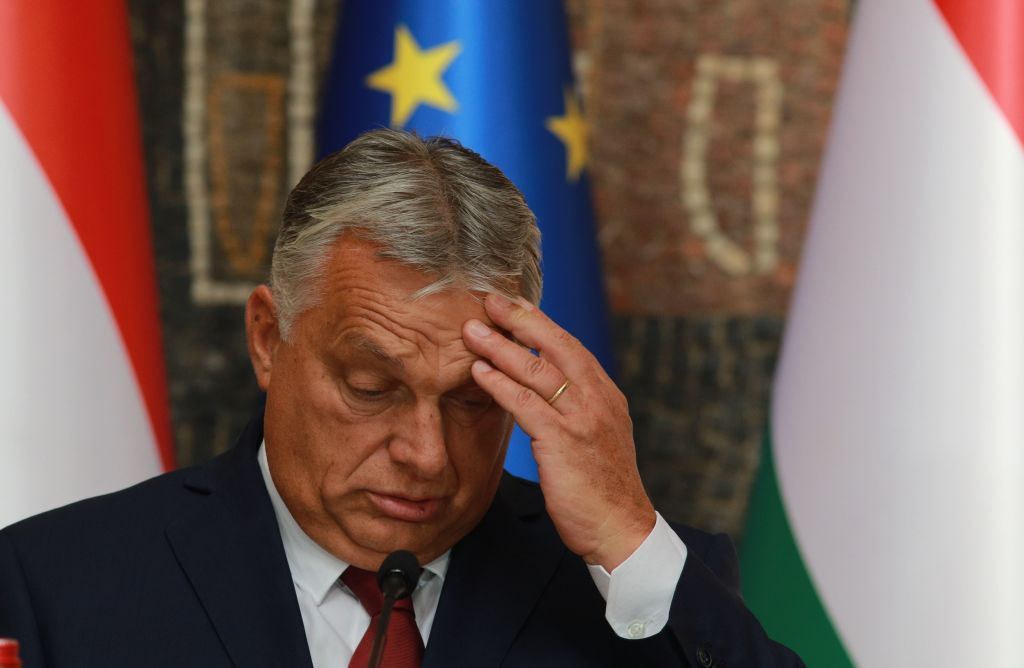
Aleksandar Vucic does it in Serbia, Turkey does it, India does it, and lots of other countries do it, we just have to accept that and find a way of dealing with that. What we shouldn't accept is that it's possible inside a full member state of the EU.
The Kyiv Independent: As a historian, how do you view the Russian war against Ukraine from a historical perspective?
Timothy Garton Ash: It's a classic example of a central or eastern European nation that came relatively late to having its state. These are stories of nations becoming states, which are classic eastern European stories over the last 150 years.
Ukraine is the one that missed out after World War I. (Ukrainian historian) Serhii Plokhy says in his book “Gates of Europe” that this was the biggest European nation that didn't have a state.
It’s a hundred-year story. 1991, 2004, 2014, and 2022 are the four stages through which Ukraine has come not only fully to recognize itself as a nation-state from Lviv to Kharkiv and from Sumy to Mariupol but also gained recognition from the rest of the world that it is a major European state.
From a historical perspective, that’s a hundred-year-plus story and that, whatever the outcome of the war is, that will remain. Everybody knows where Ukraine is and what it is, even if the war ends badly.
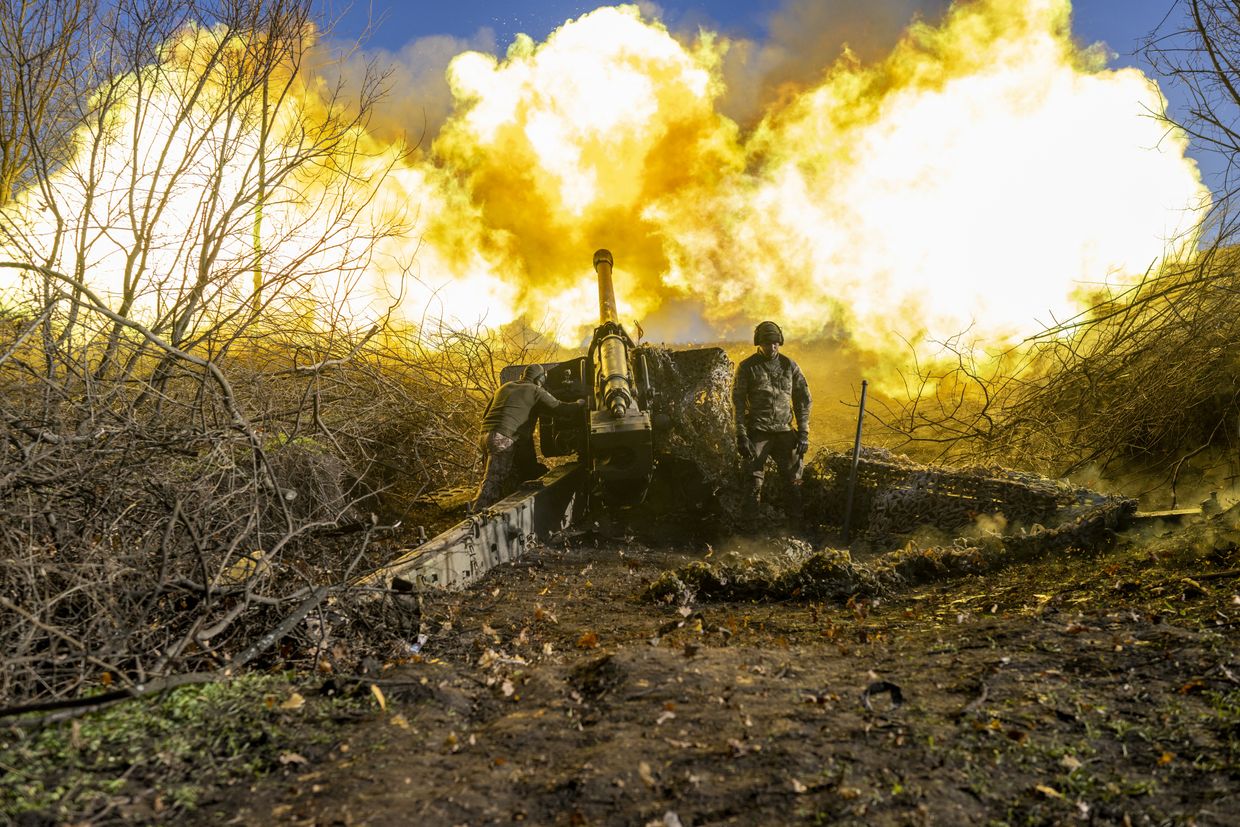
The Kyiv Independent: Aren’t you worried that the world's focus is already shifting away from Ukraine, for example, when compared to 2022?
Timothy Garton Ash: Undoubtedly. First of all, the very fact that (the war) has lasted so long has meant it's disappeared from the front page.
That, for you as a journalist, is an interesting phenomenon. The same thing happened with Bosnia. Journalistically, it just ceases to command the same attention.
Gaza has completely knocked Ukraine off the front page. And just as we were beginning to convince the rest of the world that they should be on Ukraine's side, they turned around and said there are double standards in the West, which is denouncing violations of international humanitarian law in Ukraine, but being very reluctant to do so in Gaza.
The Kyiv Independent: Going back to the topic of the post-wall era, do you think we already entered a new era, a post-2022 era?
Timothy Garton Ash: Excellent question. I would say the post-wall era began on Nov. 9, 1989 (the day of the fall of the Berlin Wall) and ended on Feb. 24, 2022. I think it's over. And that's really important because in history and politics, as in romance, beginnings really matter. What you do in the first years or first month matters more than what you do in your 27th year of marriage.
Look at the five years after 1945. They set the terms for international order for the next half century and, to some extent, even until today. The first few years after 1989 – same story.
We're at the beginning of a new era, which means that what we do now is particularly important.
And what’s characteristic of such periods is that there’s a wide range of alternatives. In more normal, settled times, when everything has settled down into a Cold War order, or the Treaty of Versailles order, or the Treaty of Westphalia order, or the Treaty of Vienna order, the options are much smaller.
But here, the alternatives are large, which is why it's so important that we in the West and in the rest of Europe achieve clarity that we must, in our own interest, want Ukraine to win. Then, think about how we can actually help Ukraine win.
Note from the author:
Hi, this is Martin Fornusek. I hope you enjoyed this interview.
To underscore its main points, whether we like it or not, we stand in a pivotal moment in history, and the actions of every single one of us will matter. Our team strives every day to bring you in-depth insights into Russia's ongoing war and Ukraine's resistance, but we wouldn't be able to do so without the support of readers like you. To help us continue in this work, please consider supporting our reporting.
Thank you very much.
